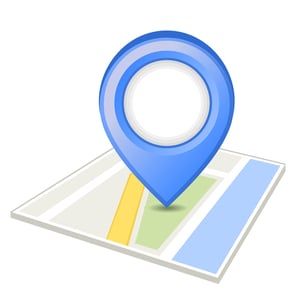 One of the most coveted positions on Google’s search rankings is in the local search box. This local search box is important for computer searches to help connect searchers with local businesses and because it shows up at the top of Google’s search results. However, it’s even more important on mobile devices, which account for over half of all Google searches, because people are often searching for a local business on the go to visit immediately. To make sure your business ranks for local search, there are some steps you can take to optimize your site. We’ll walk you through these steps to help get your business’s website into Google’s coveted local search box.
One of the most coveted positions on Google’s search rankings is in the local search box. This local search box is important for computer searches to help connect searchers with local businesses and because it shows up at the top of Google’s search results. However, it’s even more important on mobile devices, which account for over half of all Google searches, because people are often searching for a local business on the go to visit immediately. To make sure your business ranks for local search, there are some steps you can take to optimize your site. We’ll walk you through these steps to help get your business’s website into Google’s coveted local search box.
Optimize Your Homepage
One of the most important steps to take for local SEO, and for SEO in general, is to optimize your home page. On your homepage, it’s should be very clear who you are, what industry you’re in, what you do, and, most important for local search, where you’re located. Making this information clear will help Google understand your business and rank it appropriately. However, in addition to including this information within your homepage, you should also include your location on the title tag and header tags of your homepage to improve your local SEO.
Include Your Location on Every Page
When creating pages for your website, it’s important to make sure there’s a page for every product or service you offer. The best way to optimize your site is to create pillar pages with overarching topics that describe your business. Within these pages, you’ll provide links to subtopics that mention your products or services. Within these pages, you should include a mention of your location. For every page, you should reference your location in the title tag. You should also include the address in the footer of every page on your site. Although you should avoid keyword stuffing, you should mention your location at least once per page to make your location clear to Google.
Create Separate Pages for Separate Locations
If your business has a few different locations, it’s a good idea to create a separate contact page for each location. When you list multiple locations on the same page, it can be confusing to Google when trying to place your business. When you create separate pages for your different locations, it is a clear sign to Google that you have multiple locations, rather than having Google question which location is accurate.
Claim Your Google My Business Page
One important step you can take to ensure the best possible rank for local SEO is to claim your Google My Business page. Google My Business listings appear on the side of Google rankings when someone searches for your business. This listing also populates Google’s local search box if you are able to earn a spot inside. For these reasons, it’s important to claim your Google My Business listing and add in your information. You can include your address, phone, and other contact information. For tips on optimizing your Google My Business listing, click here. In addition to its value for local search, your Google My Business listing is also a valuable marketing tool, as users can ask questions that you can answer and create reviews that you can respond to.
Build Local Links
Most SEO experts know the importance of link building to increase referral traffic and improve search rankings, and local search is no different. To improve your local SEO, do your best to build local links. Building these links will help Google associate your business with other local businesses, improving your reputation and your presence in the local community according to Google. There are a few different ways you can build local links. You can connect with other local businesses through social media as well as any local blogs or local news sources that you can get to mention your business and link to your site. If you join any associations or local organizations, they can link to your site as well. Finally, you can submit to local directories, both for businesses in general or industry-specific directories to build your local links.
Combine Local SEO With Other SEO Efforts
When attempting to improve any type of SEO, it’s important to remember SEO best practices. If you’re putting all of your effort into local SEO but ignoring best practices for general SEO, your site will not achieve its best possible rank because Google will not see your website as high quality. The most important thing to have on your site is high-quality content that your potential customers want to read. There should be at least 300 words on every page along with an image. You should properly optimize each page for keywords as well, including them in the title tags, but avoid keyword stuffing. When you follow SEO best practices and focus your efforts on local search, you can earn a spot in Google’s coveted local search box.
ImageWorks, LLC | CT Search Engine Optimization
While professional SEO services can offer many opportunities to your business, you should never depend on SEO alone for the growth of your business. The companies that thrive on the online world have a comprehensive approach and utilize both online and offline marketing strategies. SEO can be a big piece; however, it is only one slice of the marketing pie.
By integrating all of today's Web tools such as SEO, social media, pay per click, and blogs, ImageWorks, LLC can turn your site into a lead generation tool.

